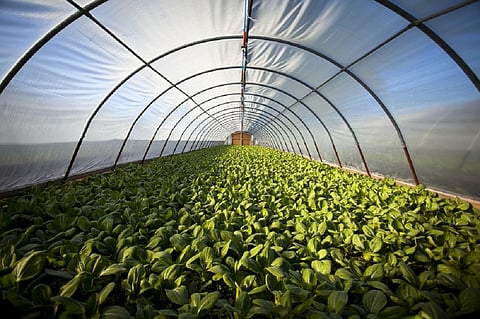Can synthetic biology offer solutions to environmental challenges?
The Earth’s biodiversity is deteriorating at an unprecedented rate. It is critical to protect the environment to cut down the destruction of the ecosystem caused by a myriad of anthropogenic activities.
One-third of all animal and plant species on the planet could face extinction by 2070 due to climate change, said a study by the University of Arizona in the United States.
Researchers and environmentalists consider synthetic biology or ‘synbio’ as a potential tool to preserve biodiversity and restore the natural ecosystem.
Now, the question is: What is synbio and how could it be used to preserve our biodiversity and ecosystem?
Synthetic biology or synbio is a broad and dynamic field of innovation encompassing the design and construction of new biological parts that redesign existing natural biological systems to address real-time and real-world problems.
It is a proliferating area of science that could influence everything from what we eat to how we treat diseases. Almost all industries employ several tools for biodiversity conservation, owing to the dynamic opportunities assured by the latter.
This technology is already being put into use for sustainable production of bioenergy, drugs, and food. An interesting application of synbio is its usage for the capture of carbon dioxide from industrial emissions.
The captured gas is then recycled to fuels using microorganisms. Potentially, such transformations comprise benefits ranging from protecting threatened species to providing synthetic alternatives to wildlife products.
These capabilities have ripple effects and they benefit researchers pursuing avenues that were not economically viable or scientifically feasible. They also help us resolve some of society’s most imperative problems from infectious disease to drug development to sustainability.
The application of synthetic biology has a lot of potential to tackle environmental issues.
There is no widely accurate definition of synbio. Yet, it has become a dynamic tool to advance science, making processes more efficient, enabling completely new approaches to biology and helping scientists find the right answers, faster and in a more efficient way.
Many companies and research centres within Ireland are making a serious investment in synbio. This is because it has the solutions for environmental challenges such as climate change, sustainable management of environmental assets, provision of clean water and reduction of pollution.
But to reach the UN Sustainable Development Goals, we need to walk extra miles beyond reducing emissions. We should reinstate ecological balance and cut down pollution and plastic waste from our industrial processes and day-to-day activities.
Advances in synthetic biology will be just a part of the solution to some of the most severe threats to the environment including reducing chemical and plastic pollution, recycling carbon dioxide from the atmosphere and conserving biodiversity.
Protecting our environment is the foundation of sustaining our planet, community and economy. Individuals can be drivers of change through behaviours, business and government.
Although keeping our little corner of the planet clean and green at times may seem daunting but even small steps count. This planet needs our kindness because there’s only one Earth. Rethink-Reuse-Recycle.
Tanaz Buhariwalla is India Director, IDA Ireland
Views expressed are the author’s own and don’t necessarily reflect those of Down To Earth


